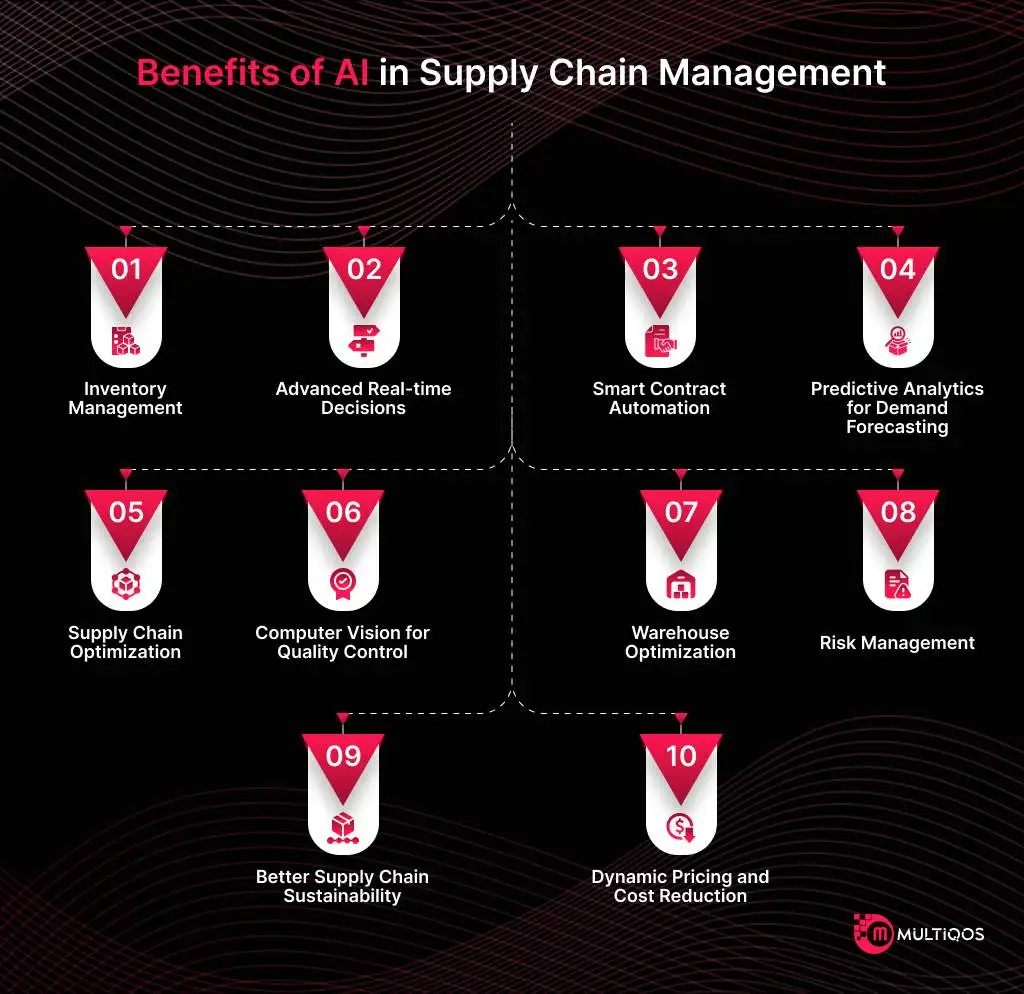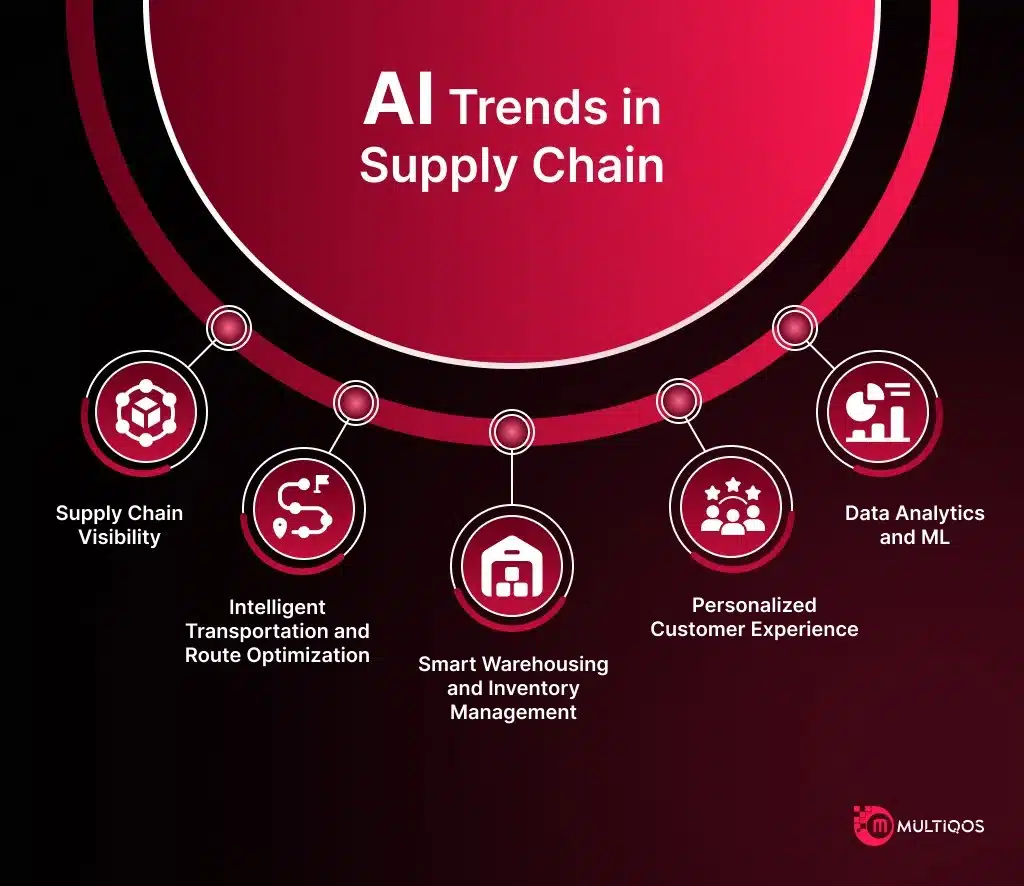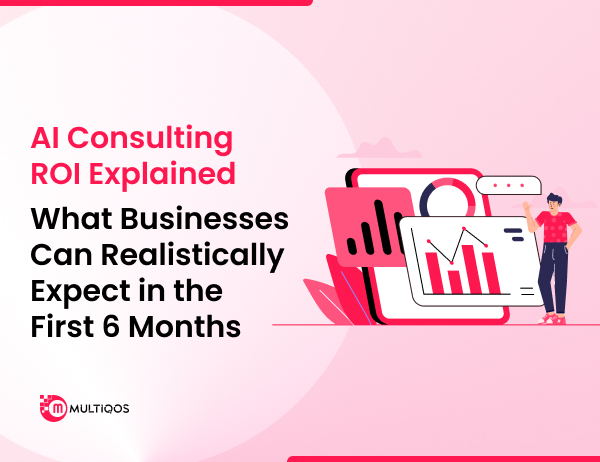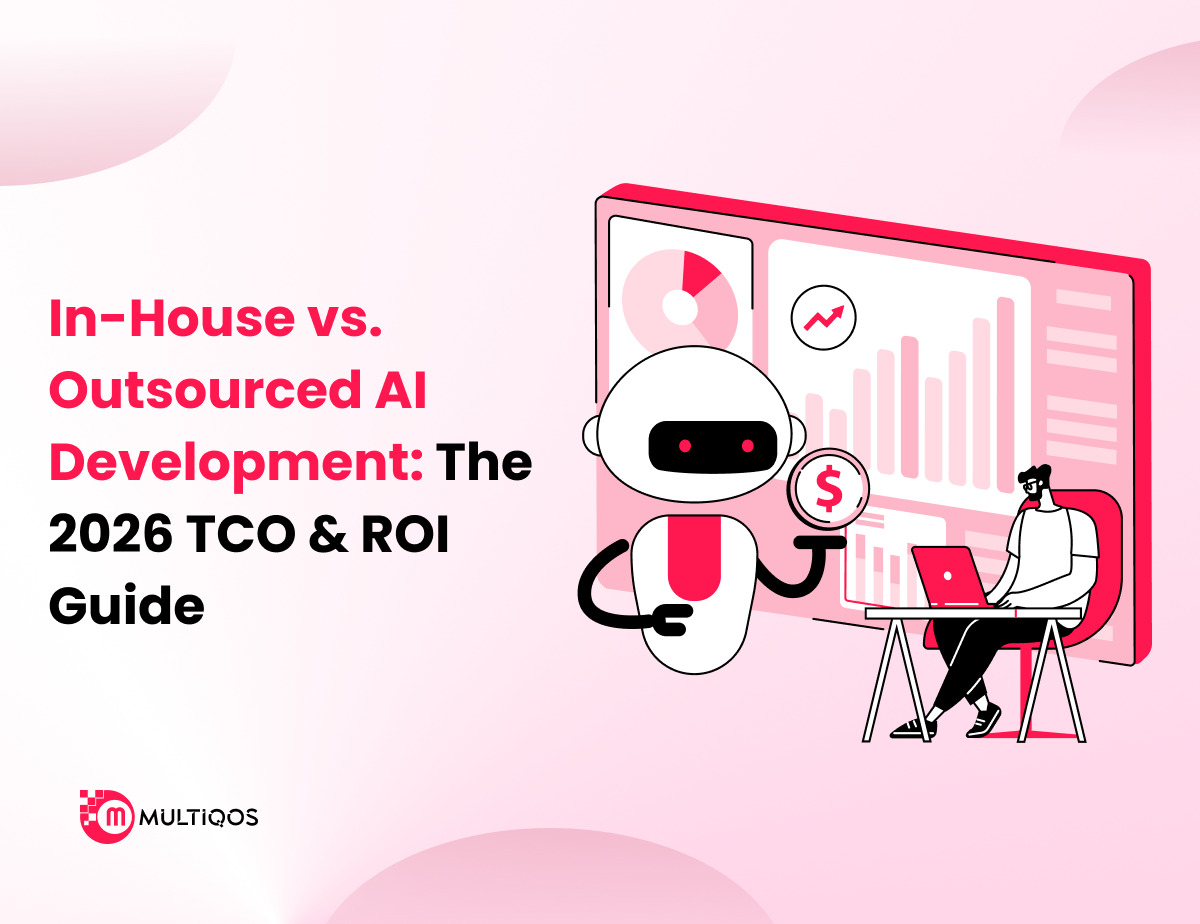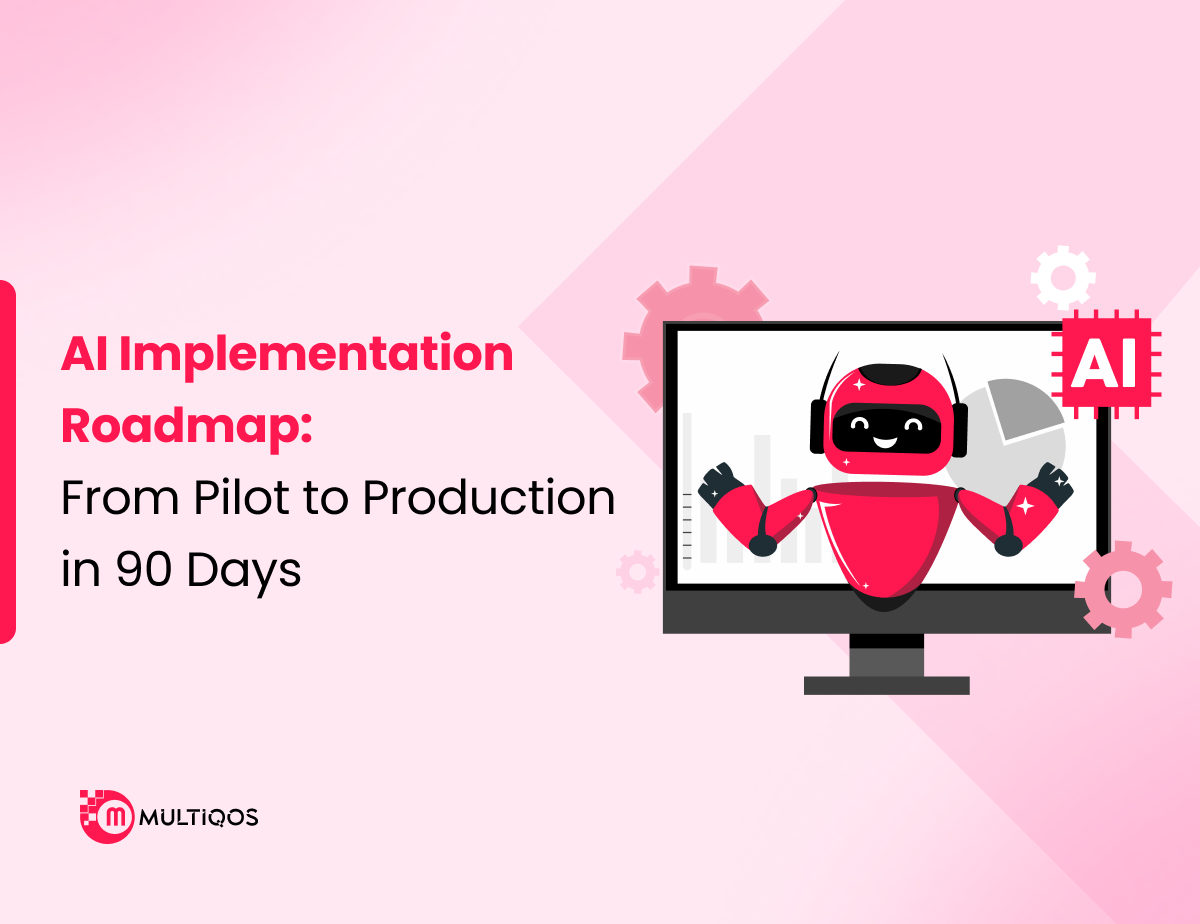AI In Supply Chain Management: Trends, Benefits, And Use Cases
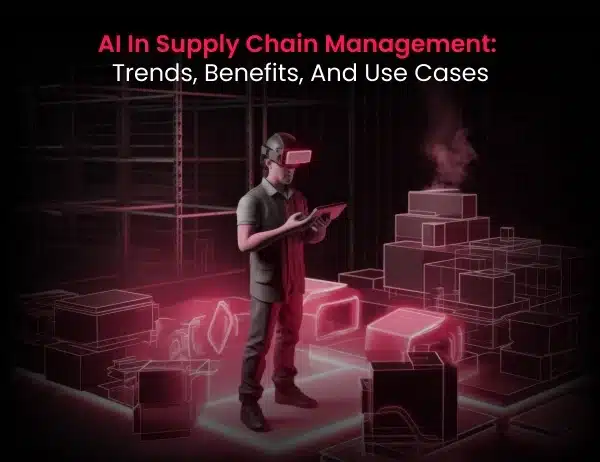
Table of Contents
- Introduction
- What is AI in Supply Chain Management?
- Role of AI in Supply Chain Management
- How Does Artificial Intelligence in Supply Chain Management Work?
- What are the Benefits of AI in Supply Chain Management?
- Key Trends of AI for Supply Chain Management
- AI in Supply Chain Management: Top 3 Use Cases
- AI in Supply Chain: Challenges and Considerations
- Wrapping Up
- FAQs: AI In Supply Chain Management
Summary:
AI is playing a transformative role in supply chain management, enabling companies to operate with greater agility, precision, and efficiency. As global supply chains become more complex, AI technologies are being leveraged to enhance everything from demand forecasting and inventory control to logistics and supplier coordination.
This blog takes a closer look at how AI in supply chain management is being integrated into different areas, examines practical use cases across industries, and highlights the growing importance of AI-driven decision-making in building smarter, more responsive supply networks.
Introduction
What if I told you that leveraging AI in supply chain management could be the key to unlocking unprecedented levels of efficiency and customer satisfaction? The relevance of AI for supply chain management has skyrocketed as businesses navigate an increasingly complex global market.
In this article, we will examine the current trends, explore the myriad benefits of integrating AI technologies, and highlight inspiring use cases that illustrate how companies are achieving remarkable results. By the end, you’ll have a clearer understanding of how to harness AI’s potential in your own supply chain strategy.
What is AI in Supply Chain Management?
AI in supply chain management is revolutionizing how businesses operate by enhancing efficiency, reducing costs, and improving decision-making processes. Through advanced algorithms and machine learning, AI can analyze vast amounts of data in real-time, allowing companies to predict demand fluctuations, optimize inventory levels, and streamline logistics.
This level of insight transforms traditional supply chain operations into agile networks that can swiftly adapt to market changes and consumer needs.
The integration of artificial intelligence and supply chain operations facilitates predictive maintenance, ensuring that machinery and equipment are serviced before failures occur. This proactive approach not only minimizes downtime but also extends the lifespan of assets, driving cost-effectiveness.
Also, AI-driven analytics enable organizations to identify potential risks in their supply chains, from supplier reliability to geopolitical issues, empowering them to make informed strategic decisions.
As AI continues to evolve, its role in supply chain management will likely expand, paving the way for smarter, more resilient business ecosystems.
Role of AI in Supply Chain Management
Artificial intelligence in supply chain management is revolutionizing the way businesses operate, introducing unparalleled efficiency and responsiveness. By leveraging AI-driven analytics, companies can anticipate demand fluctuations with remarkable accuracy, enabling them to optimize inventory levels and reduce waste.
Predictive algorithms analyze historical data, market trends, and even social media signals to forecast customer behavior, ensuring that products are available where and when needed.
Moreover, AI based supply chain management enhances decision-making processes by providing real-time insights into operations. Machine learning models can identify potential disruptions before they occur, allowing companies to implement proactive measures rather than reactive solutions.
This capability minimizes delays and strengthens supplier relationships through improved communication and collaboration.
As organizations embrace these advanced technologies, they unlock new avenues for innovation, transforming traditional supply chains into agile networks capable of adapting to an ever-changing market landscape.
How Does Artificial Intelligence in Supply Chain Management Work?
Supply chain management and AI work together to enhance efficiency by leveraging automation, predictive analytics, and real-time data processing. AI for supply chain optimization enables businesses to analyze vast amounts of data from supplier networks, logistics, and inventory systems, improving decision-making.
Machine learning algorithms help forecast demand fluctuations, minimizing risks such as overstocking or shortages. AI-driven automation enhances warehouse management, streamlines procurement, and reduces human errors. AI supply chain software plays a crucial role in optimizing logistics by improving route planning, reducing transportation costs, and ensuring timely deliveries.
Beyond efficiency, AI strengthens supply chain resilience by identifying potential disruptions before they occur. By analyzing external factors such as weather conditions, geopolitical risks, and supplier performance, AI-driven systems suggest contingency plans, ensuring smooth operations.
AI-powered chatbots and virtual assistants improve communication between suppliers and customers, offering real-time updates and enhancing service levels. Robotics and IoT-enabled AI based supply chain management solutions optimize production lines by predicting maintenance needs, reducing downtime, and increasing operational efficiency.
With AI for supply chain optimization, businesses achieve greater visibility, faster decision-making, and a more agile, responsive supply chain.
What are the Benefits of AI in Supply Chain Management?
Artificial Intelligence is transforming supply chain management by improving efficiency, reducing costs, and enabling smarter decision-making. Here are the key benefits AI offers in this domain:
1. Inventory Management
AI-powered systems help optimize inventory levels by predicting demand fluctuations, reducing stockouts, and minimizing excess inventory. Machine learning algorithms analyze historical sales data and market trends to provide accurate forecasting, improving inventory accuracy.
2. Advanced Real-time Decisions
The impact of AI on supply chain management enables real-time decision-making by continuously analyzing large volumes of data from various sources. This allows businesses to respond promptly to disruptions, demand changes, and supply fluctuations, ensuring seamless operations.
3. Smart Contract Automation
Blockchain integrated with AI streamlines smart contract execution, reducing administrative overhead and ensuring compliance. AI-driven smart contracts automate procurement processes, supplier payments, and order verification, enhancing supply chain transparency.
4. Predictive Analytics for Demand Forecasting
AI-powered predictive analytics leverage historical data, consumer behavior, and market conditions to forecast demand accurately. This helps businesses adjust production schedules, manage stock levels, and reduce waste, leading to cost savings.
5. Supply Chain Optimization
AI-driven optimization models enhance supply chain efficiency by identifying the most cost-effective transportation routes, improving supplier selection, and streamlining logistics operations. AI ensures better coordination among different supply chain stakeholders.
6. Computer Vision for Quality Control
AI-powered computer vision systems detect product defects and inconsistencies in manufacturing and warehousing. Automated quality control reduces human errors, ensuring high-quality products reach consumers while minimizing returns and recalls.
7. Warehouse Optimization
AI-powered robotics and automation improve warehouse operations by optimizing storage space, reducing picking and packing time, and streamlining order fulfillment. AI-driven warehouse management systems enhance productivity and accuracy.
8. Risk Management
AI enhances risk assessment by analyzing data related to supplier performance, geopolitical events, and natural disasters. AI-driven risk management systems help businesses anticipate potential disruptions and develop mitigation strategies.
9. Better Supply Chain Sustainability
AI in supply chain management helps businesses achieve sustainability goals by optimizing resource utilization, reducing waste, and minimizing carbon footprints. AI-powered analytics enable organizations to implement eco-friendly practices throughout the supply chain.
10. Dynamic Pricing and Cost Reduction
AI-powered dynamic pricing models adjust prices based on real-time market demand, competitor pricing, and customer behavior. This allows businesses to maximize profitability while offering competitive prices. Additionally, AI helps identify cost-saving opportunities in procurement and logistics.
Key Trends of AI for Supply Chain Management
AI is transforming supply chain management by introducing smarter, data-driven solutions that enhance efficiency and decision-making. Below are some key trends shaping the industry:
1. Supply Chain Visibility
Real-time visibility across the supply chain is crucial for optimizing operations and reducing disruptions. AI-powered tools leverage IoT sensors, RFID tracking, and predictive analytics to provide end-to-end transparency, enabling businesses to monitor shipments, anticipate delays, and improve logistics planning.
2. Intelligent Transportation and Route Optimization
AI and supply chain enhance transportation management by optimizing routes, reducing fuel consumption, and minimizing delivery times. Machine learning algorithms analyze traffic patterns, weather conditions, and historical data to suggest the most efficient routes, leading to cost savings and improved delivery performance.
3. Smart Warehousing and Inventory Management
Automated warehouses powered by AI-driven robotics and computer vision improve inventory accuracy and order fulfillment. AI algorithms predict demand, optimize stock levels, and minimize waste, ensuring a seamless supply chain flow while reducing operational costs.
4. Personalized Customer Experience
AI and supply chain enable businesses to tailor their services based on customer preferences and buying behaviors. Through AI-driven chatbots, predictive analytics, and personalized recommendations, companies can enhance customer satisfaction, streamline order processing, and improve overall supply chain efficiency.
5. Data Analytics and Machine Learning
The integration of AI and machine learning in supply chain management allows businesses to make data-driven decisions. Advanced analytics help identify trends, forecast demand, and detect inefficiencies, empowering organizations to proactively address challenges and optimize their supply chain strategies.
AI in Supply Chain Management: Top 3 Use Cases
1. Amazon (AI-Based Demand Forecasting & Warehouse Automation)
Amazon utilizes AI and machine learning to predict customer demand with remarkable accuracy. By analyzing vast datasets, including historical purchases, seasonal trends, and regional preferences, AI helps optimize inventory levels and prevent stockouts. Additionally, Amazon’s fulfillment centers use AI-driven robotics to automate picking, packing, and sorting processes, significantly improving operational efficiency.
2. Walmart (AI-Powered Inventory Management)
Walmart employs AI supply chain software to track real-time inventory and improve stock management. AI-driven systems monitor customer purchasing behavior, detect product demand patterns, and automate restocking processes. This allows Walmart to maintain optimal inventory levels and minimize losses due to overstocking or spoilage.
3. Tesla (AI in Manufacturing & Predictive Maintenance)
Tesla integrates AI and IoT in its Gigafactories to optimize production lines and enhance supply chain efficiency. AI-driven predictive maintenance monitors machinery performance and detects potential failures before they occur, reducing downtime and repair costs. Tesla also leverages AI for supply chain optimization by automating procurement and managing supplier relationships more effectively.
AI in Supply Chain: Challenges and Considerations
Integration with Legacy Systems
Challenge:
Many supply chains operate on legacy systems, which can be outdated and incompatible with modern AI technologies. Integrating AI into these systems without disrupting daily operations is a significant challenge.
Solution:
- Opt for modular AI solutions that can be integrated incrementally with legacy systems, ensuring minimal disruption.
- Use API-based solutions to connect AI tools with existing software, enabling seamless data flow and communication between systems.
- Consider cloud-based AI platforms that are flexible and can be more easily integrated with various legacy systems.
Complexity of AI Systems
Challenge:
AI models, especially machine learning and deep learning models, can be complex to develop, deploy, and maintain. Many supply chain organizations lack the necessary expertise to build and manage these models effectively.
Solution:
- Partner with an AI development company or hire AI experts and machine learning engineers with experience in supply chain applications.
- Utilize pre-built AI models and software from trusted vendors, reducing the complexity of developing AI solutions from scratch.
- Provide ongoing training for staff to build internal AI capabilities and understand how to apply AI in various supply chain functions.
Data Quality and Availability
Challenge:
AI systems rely heavily on high-quality, accurate, and up-to-date data. Supply chains generate vast amounts of data from various sources, including suppliers, warehouses, inventory systems, and transportation. Inconsistent, incomplete, or incorrect data can lead to poor AI model performance and inaccurate predictions.
Solution:
- Implement strong data governance practices to ensure data consistency, accuracy, and integrity.
- Invest in data cleansing tools to process and standardize the data.
- Use IoT (Internet of Things) devices and sensors to collect real-time data and improve the quality and timeliness of the information used by AI systems.
Wrapping Up
As we all know, AI is revolutionizing supply chain management by improving efficiency, enhancing decision-making, and reducing costs. Streamlining logistics, predictive analytics, and automating quality control, innovations based on artificial intelligence can help businesses adapt to changing demands and optimize operations.
Companies are constantly adopting AI, which clearly represents that the future of supply chain management looks more agile, resilient, and data-driven. To leverage these advancements to the fullest, businesses must hire AI developers who are experts in creating tailored AI solutions that drive operational excellence and sustainable growth.
FAQs: AI In Supply Chain Management
AI is used in supply chain management for demand forecasting, inventory optimization, route planning, warehouse automation, and real-time tracking. It enhances efficiency, reduces costs, and improves decision-making by analyzing large volumes of data.
AI improves supply chain visibility, enhances efficiency, reduces operational costs, minimizes risks, and ensures better demand forecasting. It also optimizes transportation, automates warehouses, and personalizes customer experiences.
The process to hire AI developers from MultiQoS is simple and efficient. Follow these steps to get started:
- Define Your AI Project Needs – Outline your goals and technical requirements.
- Connect with MultiQoS – Reach out to discuss your project with our experts.
- Get AI Developer Recommendations – We provide a curated list of skilled AI professionals.
- Interview & Select – Assess candidates through technical interviews and portfolio reviews.
- Choose a Hiring Model – Opt for dedicated, project-based, or hourly hiring.
- Onboard & Start Development – Seamless onboarding and project execution.
Businesses can start by identifying key areas where AI can add value, such as demand forecasting or logistics optimization. Collaborating with AI experts and gradually integrating AI-driven solutions can ensure a smooth transition.
Get In Touch


